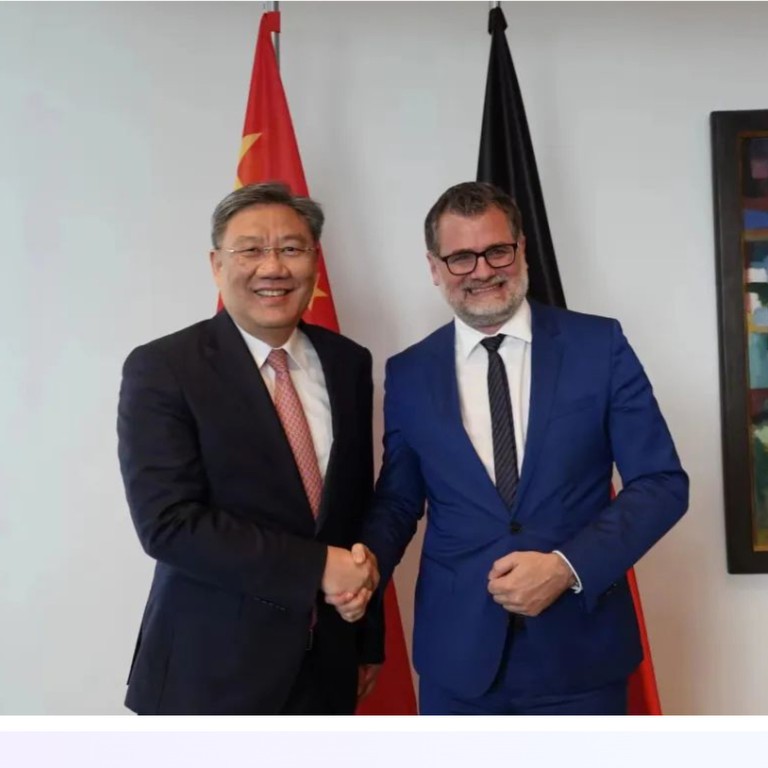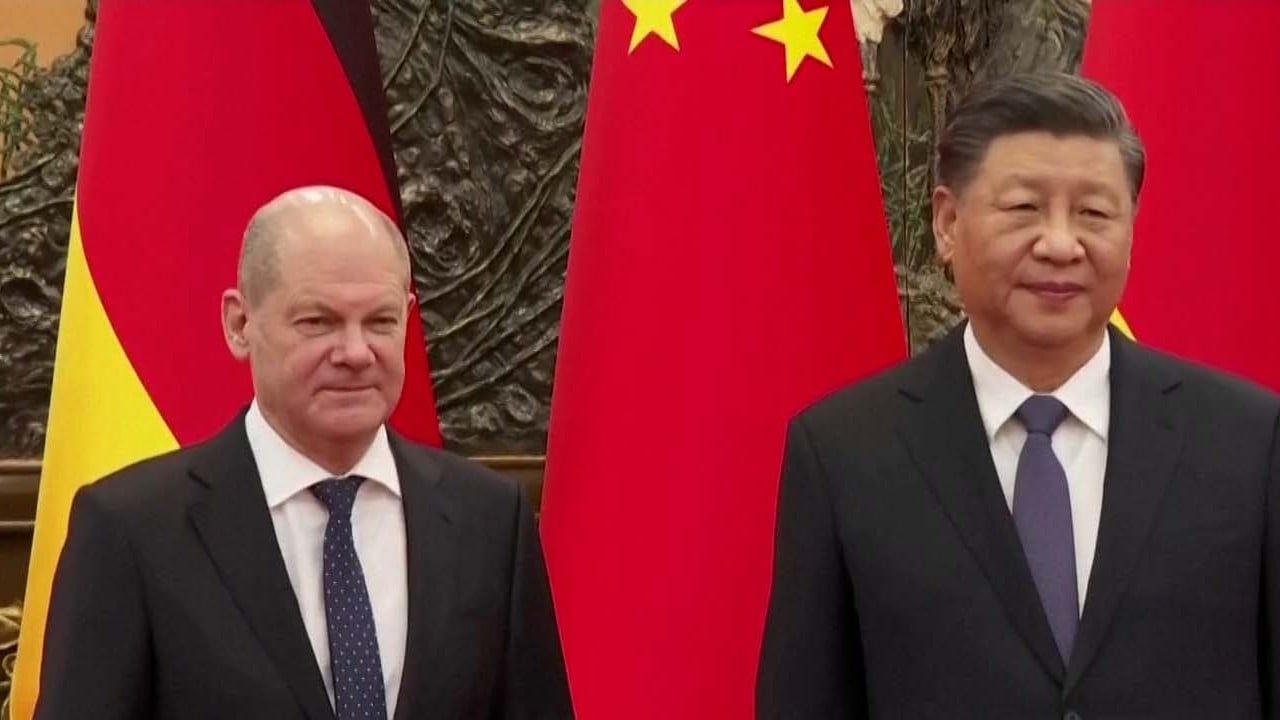
China’s whirlwind Europe tour puts economic and trade windfalls in Beijing’s cross hairs
- New energy and the digital economy are rife with potential for cooperation between China and Germany, commerce ministry says after high-level exchange in Berlin
- China eyes more ‘leadership exchanges’ with European countries to bolster business ties with Western economies as US relations have soured
Chinese commerce minister Wang Wentao is vying to step up economic ties with Germany as both sides prepare for “leadership exchanges”, in line with Beijing’s efforts to boost business exchanges with European nations.
Wang had a “candid and practical discussion” with Wolfgang Schmidt, his German counterpart as head of the Federal Chancellery, in Berlin on Wednesday afternoon.
“The two sides agreed to expand traditional cooperation while tapping into the potential of emerging areas such as new energy and the digital economy,” a statement from the Chinese Ministry of Commerce (Mofcom) said after the high-level exchange.
Chinese foreign minister urges Germany to avoid ‘bloc confrontation’
Wang’s Berlin stop came as part of a series of meetings with European counterparts that have taken place since Friday in France, Belgium and Germany. Beijing and the European economic powerhouses have been ramping up high-level visits and trade deals after three years of strict Covid-control policies in China, and as US-China relations have continued to sour.
Before visiting Germany, Wang first stopped in France for meetings with French trade minister Olivier Becht and representatives from French businesses, including Bernard Arnault, chairman of LVMH; Axel Dumas, CEO of Hermes; and Jean Lemierre, chairman of French bank BNP Paribas.
He also met European commissioner for trade Valdis Dombrovskis and Belgian deputy prime minister Frank Vandenbroucke in Brussels.
In Germany, Wang met local politicians, including Dirk Hilbert, the mayor of Dresden in eastern Germany, and “exchanged views on strengthening cooperation in new energy and electric vehicles”, Mofcom said.
Dresden is home to Bosch, a German engineering and technology company that makes advanced computer chips. Bosch announced in January that it planned to invest US$1 billion to make components for new energy vehicles in China.
Scholz invited Premier Li Qiang for talks in Berlin in June, Reuters reported on Tuesday.
China firms are mainly eyeing developed countries to shore up exports: survey
Recent Mofcom data showed that first-quarter direct investment from France and Germany respectively rose by 635.5 per cent and 60.8 per cent from a year earlier.
Despite steps to boost economic ties, China’s relations with the EU and its economic powerhouses still face challenges ranging from security concerns to political differences.
EU leaders have been in discussions to address national security concerns related to China’s investments in infrastructure and hi-tech areas. Germany is considering banning components by Chinese tech companies Huawei and ZTE, according to a Reuters report in March. In November, Germany blocked two German semiconductor companies from being sold to Chinese companies.
Scholz also joined EU leaders in warning China of “consequences” if it were found to have sent weapons to support Russia in its ongoing invasion in Ukraine.


